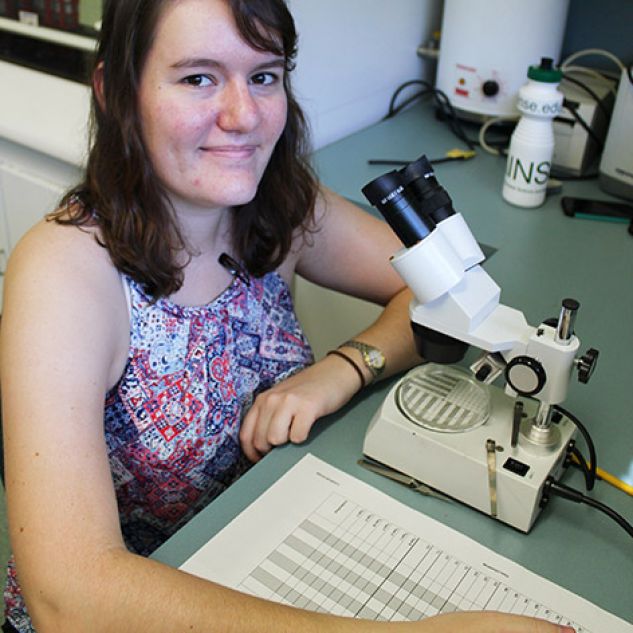Written By
Rebekah Bickerton
College
College of Science and Engineering
Publish Date
8 May 2019
Related Study Areas
Predicting future bushfire patterns
Northern Queensland is notorious for extreme and unpredictable weather. But what if there were a way to reveal climate changes in the past that could help us understand changes in the future? One JCU research team is doing just that.
Extreme weather events, like the recent Townsville floods, have been a sobering reminder that the climate is changing more rapidly than ever before. While scientists are struggling to keep up with the increasingly frequent cycle of drought, bushfires and flood, JCU researchers like Emma Rehn are using innovative techniques that could help predict future fire patterns.
By creating prehistorical records of previous periods of fire and environmental change, it may be possible to predict future extreme weather events.
Research suggests that the fire risk is only going to get worse, which is why creating these records of previous periods of fire and environmental change is a matter of urgency.
“It’s a gap in research we need to target so that we can be prepared for the future,” Emma says.
Emma has spent her research degree helping create fire histories spanning the past 4,000 years in the wetlands of Cape York and Arnhem Land. By creating a timeline of fire and environmental change, the team she is part of hope to help scientists predict future extreme fire events and climate change.
The process of creating fire histories is a complex one. Dirt, charcoal, pollen and leaves are washed or blown into the lakes and wetlands and build up over thousands of years. These layers of material hold secrets of fire and environmental patterns during previous shifts in climate.
“If you look back through the layers of dirt, you’re essentially looking back through time,” Emma says. “The main part of my research is getting dirt – sometimes half a metre, sometimes only a few centimetres – bleaching it, putting it through a series of tests and then recording all of the charcoal I find under the microscope.”


Revolutionary research
Emma’s studies began in 2014 with an Arts degree, majoring in archaeology.
Unsure of what to do next, a position with Professor Michael Bird’s research group caught her eye. The group’s subsequent work is revolutionary — no research like this has ever been done in eastern Arnhem Land.
“This is the first prehistoric record of fire for that part of mainland Australia. A lot of the charcoal techniques I’m using have been developed in the northern hemisphere and haven’t been used yet in Australia.”
Her work has paid off, and has produced some surprises along the way.
“When you pull a metre of dirt from the bottom of a lake, there’s no way to tell how old it is just by looking at it. One of my samples turned out to be over 4,000 years older than I was expecting. And some of the charcoal remnants we’ve found are evidence of fires that occurred up to 20,000 years ago!”
Emma is proud to be contributing to the knowledge of Australia’s past.
“Australia has an incredibly rich history that goes back a lot further than most people think,” she says.
“It’s really exciting looking at a core and thinking, ‘Wow, this is 20,000 years old’, or ‘Wow, there was a fire here 8,000 years ago’, so for me I’d like to share that excitement with other people.”
Emma admitted that some aspects of her work are more challenging than others, but she said it’s all worth it to raise awareness of climate change.
“Sitting in front of a microscope for over 200 hours counting charcoal can make you feel like you’re not really getting anywhere. But the past is so important. I want my work to draw attention to climate change. I want people to start thinking about this stuff — not just scientists, but the general public too. Getting people interested in it is the only way things are going to change.”